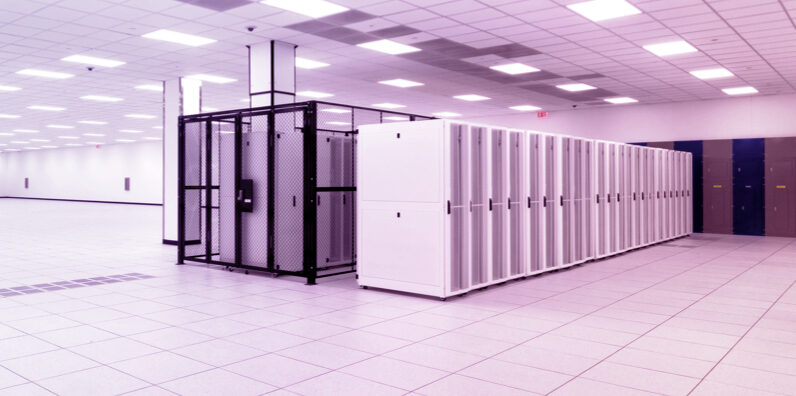
To put it simply, a data center is a physical location that houses critical IT equipment. Typically, that means routers, storage systems, servers, and application delivery controllers, and other key components. A data center allows an organization to centralize its IT operations, equipment, and various ways of storing and processing data. If you’re an IT person, you know that this is integral to how your organization functions—it’s essentially the neural network of your entire company. That’s a big deal.
Up until fairly recently, these operations were mostly in-house. Over the years, more and more enterprises began moving away from housing equipment in an office computer closet.
Here’s the thing, cloud technology has made colocation data centers the new normal. It’s now often much more cost-effective, reliable, and secure to house your company’s data at a location outside of your organization’s physical space. Why? Well, before we answer that, let’s dig a little deeper into what data centers actually do.
What does a Data Center do?
A data center is more than just a place to physically house the components that make up your organization’s data storage system. A data center plays a huge role in your organization’s day to day operations. It manages your data, makes high-volume e-commerce possible, and is frequently used for tasks as diverse as machine learning or productivity applications like email and chat applications like Microsoft Teams or Slack. It’s also vital in your backup and recovery of data, more on this in a second.
All that functionality doesn’t materialize out of thin air. It takes a lot of power to run a data center and to power global networks. That power has to be plentiful and it has to be consistent. Your organization could potentially lose money if something goes wrong with your data. That’s not the only thing they protect against—things like DDoS attacks and even in-person cyberattacks can cripple your business if your data center isn’t secured. It’s for these reasons that many organizations have chosen to move to colocation data centers.
Is a colocation data center the right fit for my organization?
Colocation data centers are large and secure facilities that are specifically built to support your power, security, and IT requirements. These data centers are designed to fulfill multiple organization’s data needs. Their size and capability allow your organization to expand your data center without having to spend more money on building a physical space or equipment.
Take our Houston 2 Data Center, it’s built from the ground up to be secure from the elements AND from attack, utilizing 8 layers of security, redundant power and cooling, and 14 global network carriers. Its location on an 18-acre campus above the flood plane guarantees that your data needs will be able to expand as needed and that they’ll be secure in a strategic location with redundancy on all critical systems.
Schedule a tour of our Houston 2 Data Center to learn more.
Many organizations have switched to this model as it allows for the flexibility, security, and growth that they require. This is the 21st century, so every second that your data needs aren’t being met is an opportunity for a competitor to get a foothold. That’s not meant to be scary, it’s meant to be empowering—a good colocation data center can be a huge step in making your business a lean, mean, data-driven machine.
Commerce has changed a ton in the last twenty years and data and cloud technology is as important as it has ever been. It’s worth looking to the future now, to stay a step ahead of the game, and to give your organization the freedom it needs to become its best self. That starts with your data center. Doing it now will save you countless money and headaches down the line.
